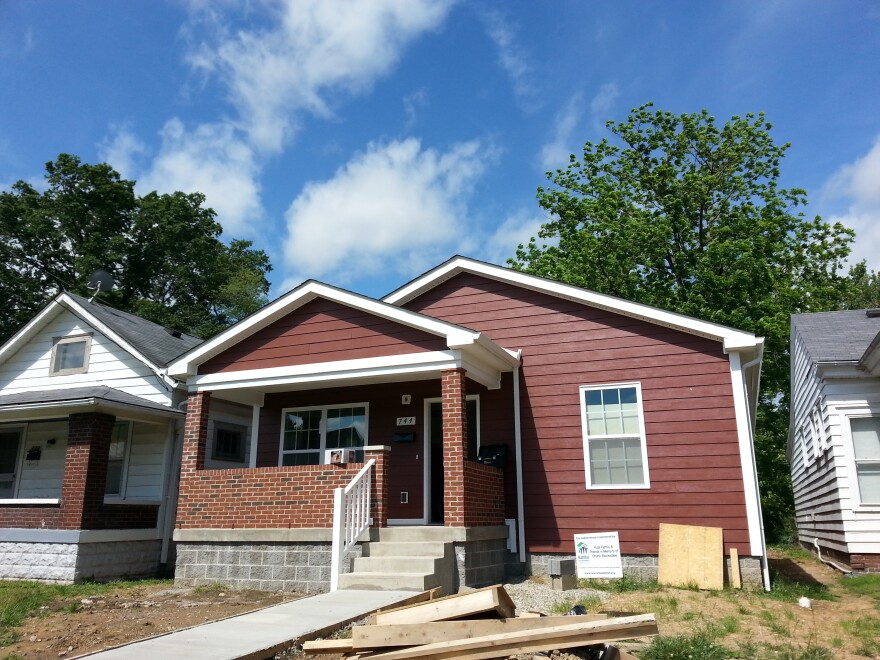The Louisville Affordable Housing Trust Fund is looking to divvy up about $450,000 for developers to build housing for poorer residents.
The funds are part of the trust fund's HOMEbuyer program, which earlier this year was streamlined to help low-income residents get into housing faster.
The federally funded HOMEbuyer program provides developers with money to construct homes for low-income residents, said Rachel Hurst, executive director of the affordable housing trust. The program also helps residents find affordable housing.
Nonprofit and for-profit developers are encouraged to apply for the funding, Hurst said. A caveat is that the funds will only be granted to developers who are in contact with pre-qualified families who are move-in ready. The funds are awarded only once the house is built and sold to a qualified resident.
"In this case, the developer of the housing comes together with a house and an applicant for the house, all of that packaged together, and comes to request funds," Hurst said.
The funds can be applied to help alleviate some costs of development, or to help homeowners foot the bill for mortgage, down payment, closing costs or furniture purchases, Hurst said. This way, she said, the program directly helps the individual.
Funding is awarded on a first-come, first-served basis, Hurst said.
She expects about 15 families to get assistance through developer support with the available funds.
The funding for the program comes from a one-time award of $1 million from Louisville Metro government that aims to help the Louisville Affordable Housing Trust Fund, River City Housing and Habitat for Humanity provide at least 29 homes to low-income families. Because it's a one-time award, the funding will not be replenished.
Louisville has a need for about 65,000 more affordable housing units, Hurst said. Ongoing and forthcoming initiatives, including Mayor Greg Fischer’s nearly $12 million push to create more affordable housing, will result in about 6,500 units, she said.
“That’s a great start,” she added. “But it’s still far short of 65,000 needed.”






